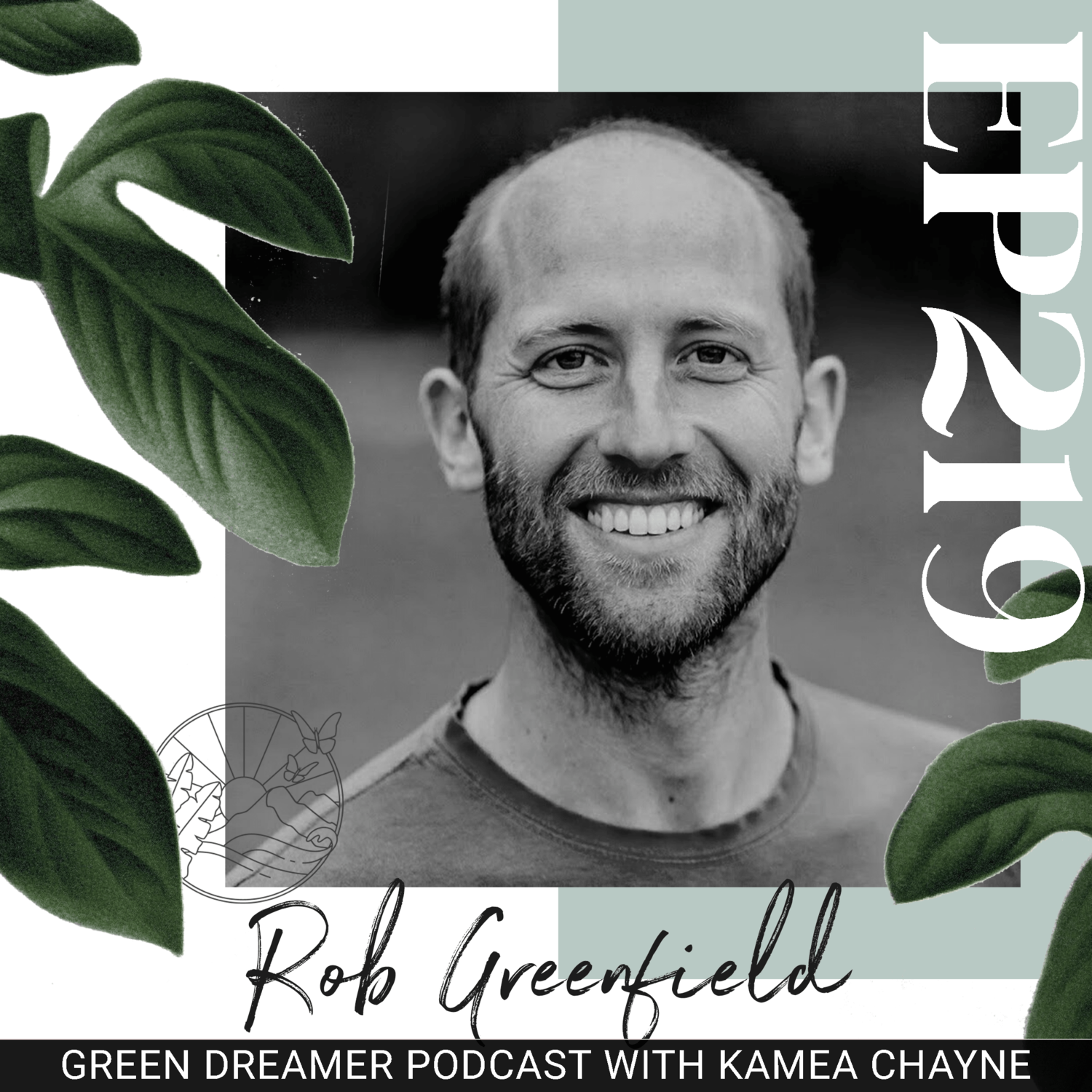Seeing past our socially constructed normalcy to find health and happiness (interview with humanitarian and activist rob greenfield)
Rob Greenfield (@robjgreenfield) is an activist and humanitarian dedicated to sustainability, equality, and justice. Rob is the author of Dude Making a Difference and the creator of The Food Waste Fiasco. We had Rob on the podcast for episode 98, and last year, he spent an entire year growing and foraging all of his own food, so we invited him back to tell us how his experience went.
In this podcast episode, Rob sheds light on his key motivations behind his bold decisions to voluntarily earn no more than the federal poverty threshold each year and donate 100% of his earnings from media to nonprofit; why he owns just 44 items that all fit in his backpack; and more.
To start, get a glimpse below into the conversation between Rob and Green Dreamer Podcast's host, Kamea Chayne
Musical feature: Trust The Sun by Mining for Steal by Fuchsia
“Normalcy is a delusion; normalcy is just seeing the same things around you day after day, year after year, and it becomes normal.”
If you feel inspired by this episode, please consider donating a gift of support of any amount today!
This is a conversation on Green Dreamer with Kamea Chayne, a podcast and multimedia journal illuminating our paths towards ecological balance, intersectional sustainability, and true abundance and wellness for all. This preview has been edited for clarity. Subscribe to Green Dreamer Podcast on Apple Podcasts, Spotify, Stitcher, or any podcast app to stay informed and updated on our latest episodes.
On how money relates to our potential to cause destruction:
"Having a lot of money allows you to cause a lot of destruction: When you can just pass over money or swipe your credit card, you don't have to think about where those products are coming from, the impact that they have, or the people behind it.
By having less money, it forces me to be a part of my community to exchange and to ultimately destroy a lot less and consume a lot less.
I don't think money is necessarily inherently evil, but it allows us to drastically increase the amount of evil that we dole out into the world."
On the delusions of our socially constructed “normalcy”:
"Normalcy is a delusion; normalcy is just seeing the same things around you day after day, year after year, and it becomes normal. It doesn't matter how crazy things are. If you're around it for long enough, it becomes normal.
So our society believes that what we're doing is normal because a lot of people don't know any other way—they haven't seen anything different.
What I decided to do quite a few years back was to zoom out. I don't know when I started to realize it, but I realized that life is a delusion. I've read a lot of books, I've watched a lot of documentaries, and I've spent time with a lot of ‘thinkers’. I don't know where it all comes from, but one thing that I realized is that most of us are just living a large series of delusions.
One obvious delusion is that we think we're sitting still when, in actuality, we're flying at thousands of miles per hour and spinning at thousands of miles per hour through the air."
On embracing our impermanence:
"I truly believe that I have embraced my impermanence far more than I ever did in the past. By everything I own fitting in my backpack and being worth really just a couple of hundred dollars, I am very impermanent—if I die after this call, there's almost nothing for anybody to take care of.
I truly have embraced the fact that I'm going to be alive for this tiny blink of humanity, and I'm okay with that. I'm not saying that I want to die tomorrow; I want to live.
But just the simple act of embracing of the fact that I'm going to die and being okay with it… that's foundational to my security because there's not that much to lose when you believe that death is okay…
Not just okay, but it's a necessary part of life, and it's beautiful. Death doesn't have to be thought of negatively at all. The American culture thinks of it as negative, but there are a lot of cultures around the world that embrace death. So I can embrace it too."

